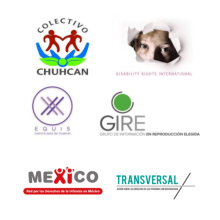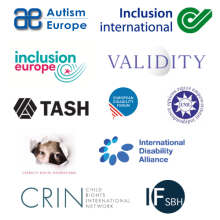Action steps to protect children and adults with disabilities during COVID-19 pandemic - especially in institutions and orphanages
Disability Rights International (DRI) is dedicated to promoting the basic human rights of people with disabilities, including the right to grow up with a family and live the community (DRI reports are posted at www.DRIadvocacy.org). For over 25 years DRI has worked around the globe documenting the human rights concerns of children and adults living in institutions, including nursing homes, social care facilities, psychiatric hospitals, orphanages, shelters, residential care, or even congregate community treatment facilities.



